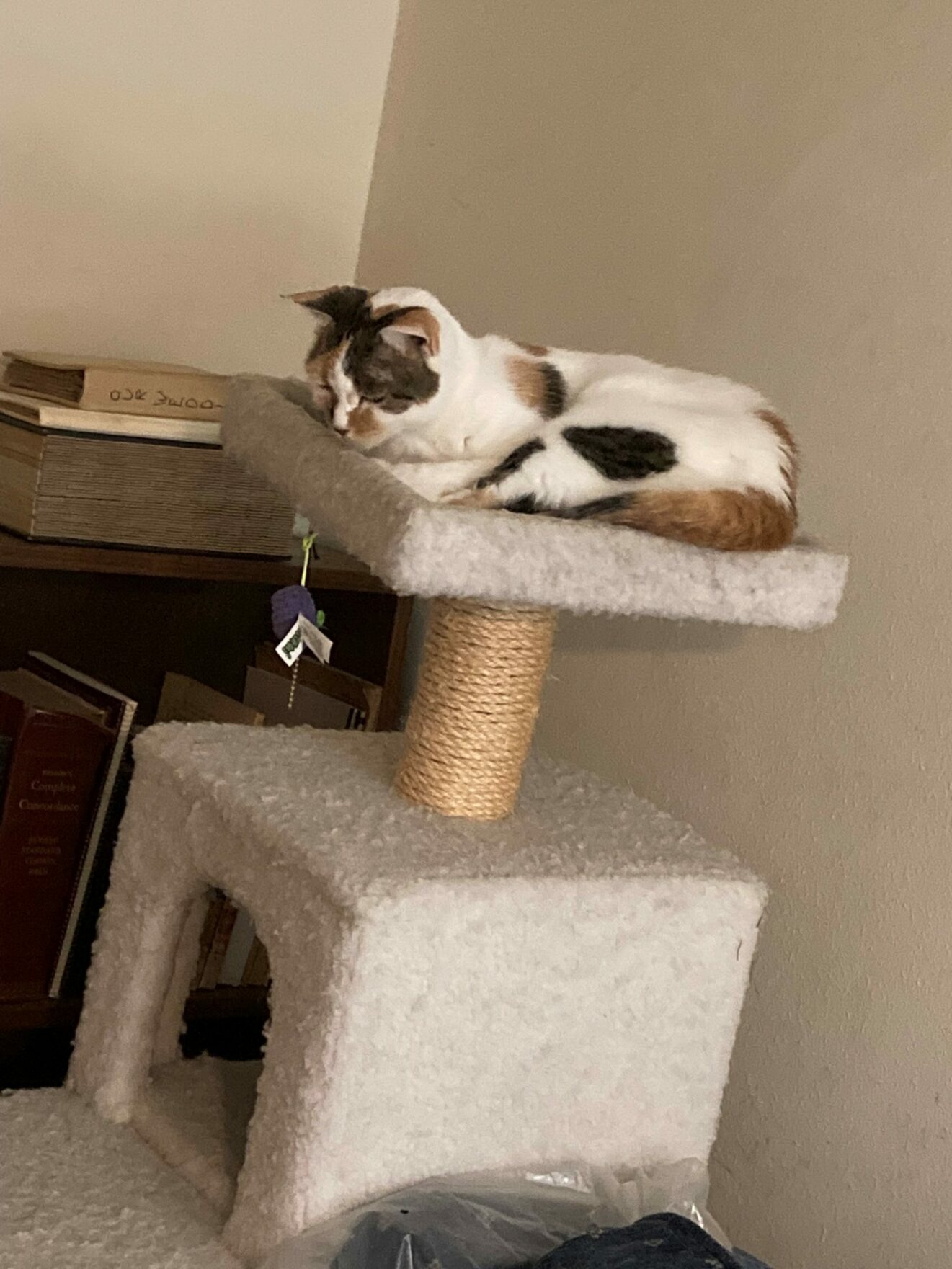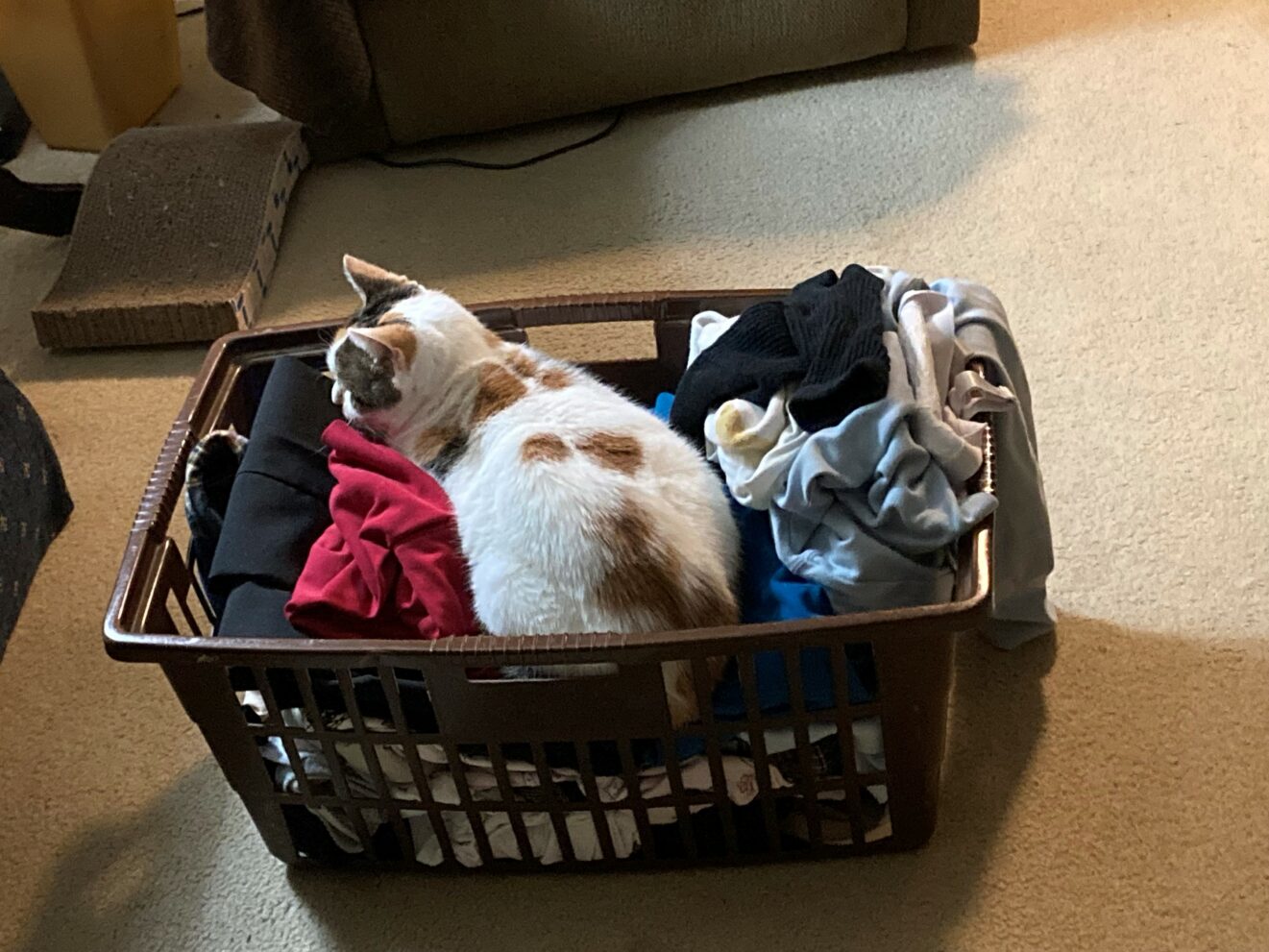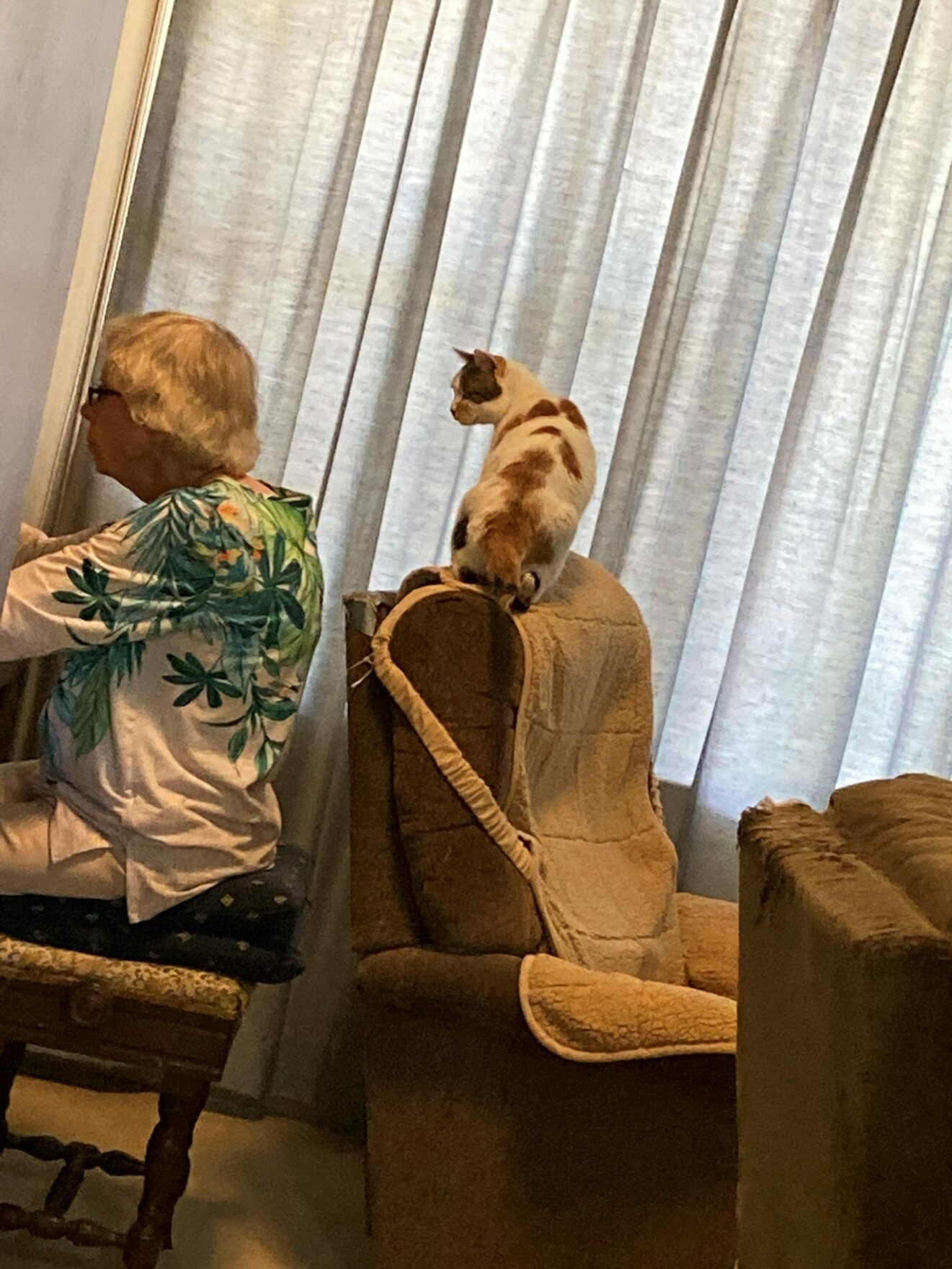
It’s never too late to make New Year’s resolutions—which are, after all, just another form of year-round long-term goal. If you have (or plan to adopt) pets, here are some “resolution” ideas for nurturing the human-animal relationship.
Resolution #1: I will think long-term when adopting a new animal.
Consider how your evolving life situation may affect your pet in coming years. That playful kitten you adopt for your children will be a senior cat with senior needs when the kids graduate high school. If you’re a senior, your pets may outlive your ability to care for them. Even switching from an all-remote to an in-person job makes it difficult to continue providing pets with their accustomed level of attention.
Resolution #2: Before adopting a pet, I will learn about specific needs of the species/breed.
Take it from a Houston SPCA volunteer: an amazing number of people looking to adopt pets barely know the differences between cats and dogs. If you have no previous experience with the type of pet you want, start your search by researching species- or breed-specific requirements for feeding, exercise, training, and cleaning-up-after.
Resolution #3: I will adopt from a reputable shelter/breeder.
Remember when every summer brought “Free Kittens” signs on every corner, and pet shops sold animals obtained from unspecified sources? Today, pets are more likely to come from official animal shelters, pet-supply stores partnering with shelters, or certified breeders—which was always the better way, since indiscriminate breeding and giving-away puts animals at high risk for abuse and major health problems. Should a homeless animal adopt you, have it thoroughly checked by a vet early on. (The vet will also scan for microchips and help confirm whether the animal is truly homeless, or simply lost.)
Resolution #4: I will respect animals as individuals.
Just like people, dogs and cats can be extroverts or introverts, easygoing or high-strung, naturally accommodating or naturally stubborn. No matter how many toy poodles you know personally, don’t expect your own new dog to react like “every other” poodle in every situation.
Resolution #5: I will provide my pets with a predictable and consistent atmosphere.
(Thanks to Walter Prescher, BridgingApps Digital Navigator, for suggesting this one.) Have you ever lived with someone who is cheerful one day and gloomy the next, easygoing one hour and hair-trigger explosive the next? Even when someone has an emotional disorder and can’t help experiencing mood swings, it’s no fun for human or animal to live on the edge of inadvertently pushing a button. Make it a priority to be consistent in pet training, in the home, and when you take a pet out in public.

Resolution #6: I will establish an ongoing relationship with a veterinary service.
Let’s face it: the vet’s office is no animal’s favorite place, yet it’s essential to have your pets neutered, vaccinated, and regularly “checked up.” Reduce stress by choosing a regular vet with a predictable “bedside manner”; by scheduling appointments at the least crowded and noisy hours; by offering a special treat after each visit; and by providing a healthy everyday environment to minimize medical problems.
Resolution #7: I will practice empathy with my pets.
Pets may not have human-level intelligence, but they do have feelings. Avoid taking your bad days out on them, getting “too busy” to pay attention to them, or letting them feel ignored when a cute newcomer joins the family.
Resolution #8: I will walk a healthy line between selfishness and overindulgence.
There are people who abuse and neglect their animals. And there are people who deny their pets nothing and take the pets’ side against every complaint, producing four-legged spoiled brats. Neither approach is good for the animals, or for their humans’ relationships with neighbors and society. However independent-minded your own pet, everyone needs some personal attention and clear understanding of off-limits areas.
Resolution #9: I will learn from my pets.
While every animal needs boundaries and some level of training, there are times we stressed-out, over-busy humans should follow their example: Live each moment to its fullest. Avoid worrying about tomorrow. Let self-awareness tell you when you need sleep or exercise. Share your feelings with the people you love.
Resolution #10: I will keep a positive attitude, focusing consistently on the joys and benefits of animal companionship.
The worst thing you can do for your pet—or yourself—is grumble about the time, trouble, and expense of keeping an animal. The best way to avoid this habit is to stay grateful for the emotional, mental, and physical benefits of pet ownership. Pet owners are overall healthier and happier than their no-pets counterparts: the joys of cuddling a furry companion pay back your own contribution tenfold.

Make your pets’ well-being a priority in coming months. You’ll never regret it!
(For a list of apps recommended for pet owners, see our December 21 Staff Picks article.)

